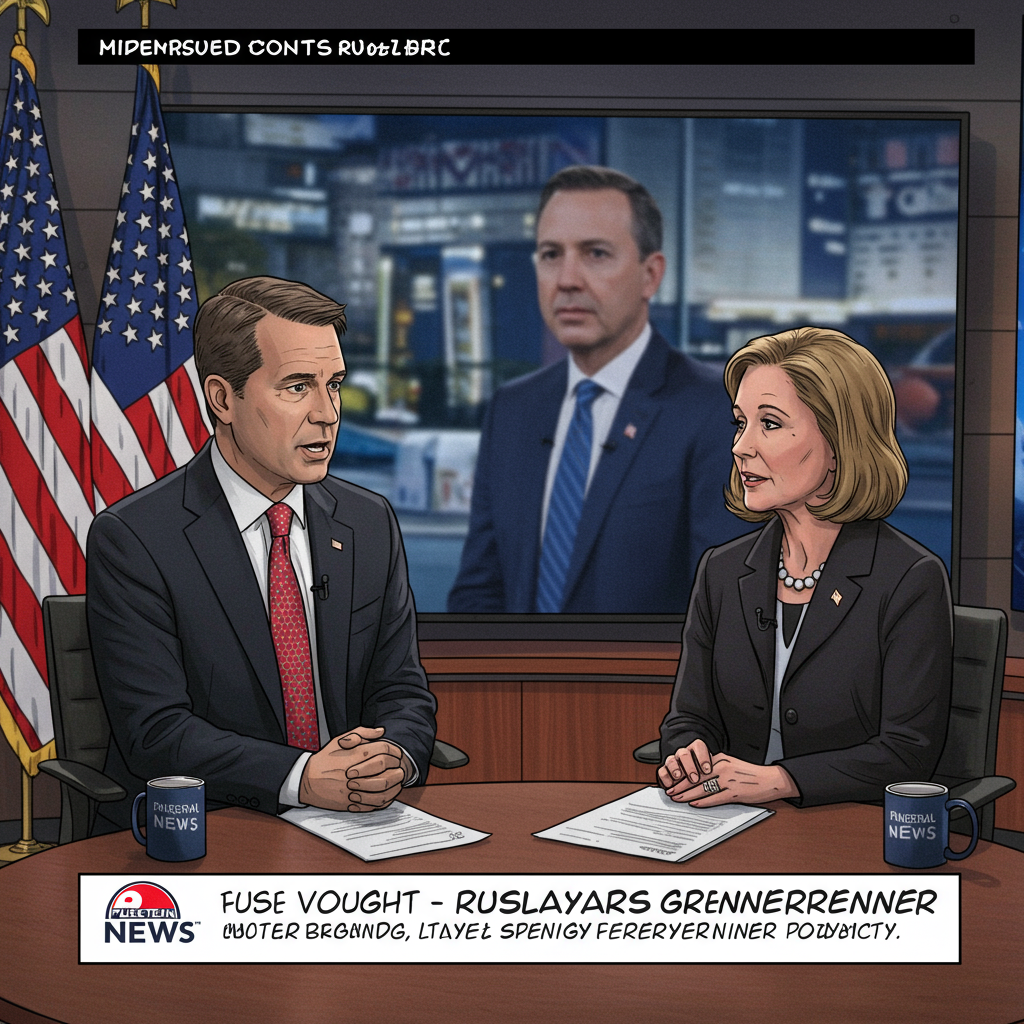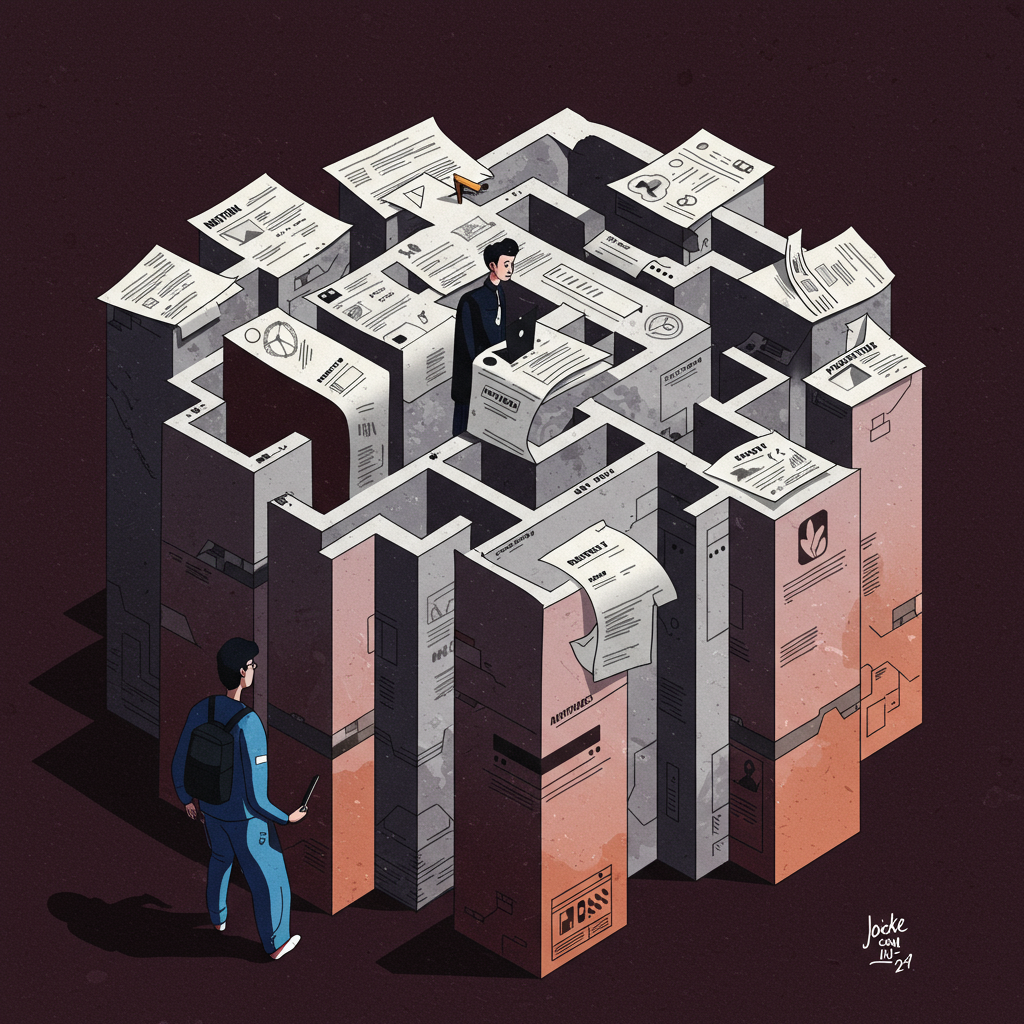The intricate dance of economic policy and federal spending often takes center stage in Washington, and a recent “Face the Nation” interview with Russell Vought, Director of the White House Office of Management and Budget (OMB), provided a candid glimpse into the administration’s bold fiscal agenda. Aired on July 27, 2025, Vought’s discussion with Margaret Brennan delved deep into the administration’s critical stance on the Federal Reserve, its controversial approach to releasing appropriated funds, and a forceful push to redefine presidential authority over the national purse strings. This interview unveiled a clear vision for an overhauled economic framework, promising significant shifts in how Washington manages the nation’s finances.
Reshaping the Federal Reserve: A Call for Timely Action
A central pillar of the administration’s economic critique, as articulated by OMB Director Russell Vought, targets the Federal Reserve and its chairman, Jerome Powell. Vought asserted that Powell has been consistently “too late” in his responses to critical economic shifts. He contended that during the previous administration, Powell was slow to raise interest rates and acknowledge the escalating inflation fueled by excessive spending, which subsequently led to “historical inflationary levels.”
Vought’s critique extended to the present, where he accused Powell of being equally slow to lower rates. This delay, he argued, stems from a fundamental misunderstanding that “inflation is largely a monetary phenomenon,” with Powell mistakenly dismissing it as “transitory.” Beyond policy, Vought also highlighted perceived “fiscal mismanagement at the Fed,” pointing to a specific building renovation as an example of questionable spending. The administration’s vision for a successor Federal Reserve chairman is clear: an individual adept at recognizing economic developments, facilitating lower interest rates, and actively stimulating the economy. While Vought did not directly comment on any specific “Project 2025” calls for a complete Fed overhaul, he emphasized the President’s unwavering commitment to an economic system that truly benefits the American people, one that necessitates lower interest rates to align with global economic trends and leverage perceived positive economic indicators.
The Controversial Strategy of Withholding Federal Funds
One of the most contentious aspects of the administration’s fiscal policy involves its decision to withhold and delay the release of congressionally appropriated funds. Russell Vought staunchly defended this strategy, characterizing it as a necessary “programmatic review” of expenditures that the administration deems inefficient or misdirected. He specifically cited billions of dollars earmarked for education and the National Institutes of Health (NIH).
Vought detailed why these funds were initially held back, claiming they often “flow to often left-wing organizations” or support programs that the administration actively opposes and has called to eliminate in its budget proposals. For instance, he alleged that “English language acquisition” funds were diverted to “illegal immigration advocacy organizations” within the New York public education system. Similarly, “Preschool development grants” were purportedly used to inject “Critical Race Theory (CRT) into the school system for children as young as four years old.” These education funds were eventually released following the review, strategically timed before the school year began.
The same rigorous review process, Vought noted, was applied to NIH funding. He offered striking examples of what he considered egregious waste, including “$2 million for injecting dogs with cocaine” and “$75,000 for Harvard to study blowing lizards off of trees with leaf blowers.” More gravely, Vought accused the NIH of being “weaponized against the American people” through its funding of “gain of function research that caused the pandemic,” underscoring his belief that the agency requires “dramatic overhaul.” Despite concerns raised by critics, including Senator Margaret Brennan, about the time-sensitive nature of releasing funds for critical research like cancer and cardiovascular disease, Vought maintained that these funds would only be released after a thorough “line by line” review.
Critics, such as Senator Chris Van Hollen, viewed these actions as a “backdoor way to make those cuts happen,” aligning with the White House budget’s proposed 26% cut to HHS and an $18 billion cut to NIH. Vought, however, acknowledged the executive branch’s inherent ability to “fund less than what Congress appropriated,” leveraging tools like the Impoundment Control Act.
Reasserting Executive Power Over Spending
A cornerstone of the administration’s fiscal philosophy, as articulated by Director Vought, is the passionate argument for restoring presidential authority to spend less than the amounts appropriated by Congress. Vought asserted that for 200 years, presidents possessed this inherent ability to identify “efficiencies” or eliminate “waste” within government agencies. He specifically pinpointed the 1970s Impoundment Control Act as a detrimental turning point, arguing that it stripped presidents of this vital authority and contributed significantly to the nation’s escalating fiscal instability.
Vought emphasized that the President campaigned on re-establishing this spending authority, deeming it crucial for effective fiscal management. While he did not explicitly call for a Supreme Court challenge, his statements clearly indicated the administration’s willingness to push the boundaries of executive power in this domain. This stance has, predictably, generated discomfort among many senators, including Republican members and the Chair of the Appropriations Committee, who advocate for working through “regular order” and congressional consensus.
Navigating the Budgetary Landscape and Avoiding Shutdowns
Regarding the broader budgetary strategy, Russell Vought vehemently rejected the assertion that the recent debt ceiling bill increased the national debt. He clarified that the debt ceiling is merely an “extension of the cap on what’s needed to pay your previous bills.” Instead, he claimed the bill resulted in “$400 billion in deficit reduction” and achieved “$1.5 trillion in mandatory savings reforms,” calling it the “biggest we’ve seen in history.” Senator Van Hollen countered this, citing the nonpartisan Congressional Budget Office (CBO) report that suggested the “Big Beautiful Bill” (referring to significant tax cuts) increased the national debt by $3.5 trillion before interest, calling Vought’s claim an “accounting gimmick.”
Vought also clarified his earlier statement about the appropriations process needing to be “less bipartisan.” He explained this was a direct response to critics who argued that the administration’s rescissions bill undermined bipartisanship. Vought maintained that the current “bipartisan appropriations process is broken” because it consistently leads to large, unwieldy “omnibus bills.” The administration’s core objective, he stated, is to “reduce the deficit” and ensure that “a dollar of cut go to $1 a deficit reduction.”
Despite the administration’s aggressive posture on spending and presidential power, Vought explicitly denied that they are “laying the predicate for a shutdown.” He insisted on the administration’s desire to “extend the funding at the end of this fiscal year,” acknowledging that bipartisan support would be necessary. He concluded that “all options are on the table” to achieve a functional appropriations process that delivers “cheaper results for the American taxpayer” and avoids the pitfalls of omnibus legislation.
Future Fiscal Trajectories
The positions articulated by Director Vought highlight a determined effort by the administration to fundamentally reshape federal spending and the balance of power between the executive and legislative branches. His comments on the Federal Reserve, the withholding of funds, and the vigorous defense of presidential impoundment authority signal a period of continued fiscal confrontation and policy innovation. The administration aims to prove that its “paradigm shift” in spending can lead to significant deficit reduction and more efficient government, despite skepticism from many in Congress and outside observers.
Frequently Asked Questions
What were OMB Director Vought’s main criticisms of Federal Reserve Chair Jerome Powell?
OMB Director Russell Vought strongly criticized Federal Reserve Chair Jerome Powell for being consistently “too late” in responding to economic developments. Vought accused Powell of being slow to raise interest rates and acknowledge inflation during the prior administration, attributing it to a misunderstanding that “inflation is largely a monetary phenomenon.” He also criticized Powell for currently being slow to lower interest rates and cited general “fiscal mismanagement at the Fed,” suggesting the administration desires a future Fed chairman who is more proactive in recognizing economic shifts and stimulating growth through lower rates.
Why did the administration withhold education and NIH funding, and what was the outcome?
The administration withheld approximately $5 billion in education funds and various National Institutes of Health (NIH) funds under the guise of a “programmatic review.” OMB Director Vought justified this by claiming the programs often channeled money to “left-wing organizations,” supported initiatives like Critical Race Theory in schools, or funded wasteful projects such as “injecting dogs with cocaine” or studying “blowing lizards off of trees with leaf blowers.” While the education funds were eventually released after the review, the administration maintained that NIH funds would also be released upon completion of a similar line-by-line assessment, signaling an intent to prevent what it considered misuse of funds and potentially make future cuts.
What is the Impoundment Control Act, and how does the administration seek to change presidential spending authority?
The Impoundment Control Act of 1974 is a law that limits the President’s ability to unilaterally withhold or delay the spending of congressionally appropriated funds. OMB Director Vought argued that this act wrongly stripped presidents of a power they historically held for 200 years: the ability to spend less than Congress appropriated, find efficiencies, or eliminate waste. The administration seeks to restore this broader presidential spending authority, viewing it as “vital” for fiscal control and linking its loss to the nation’s increasing debt. This stance suggests a willingness to challenge the traditional balance of power over the federal budget.



